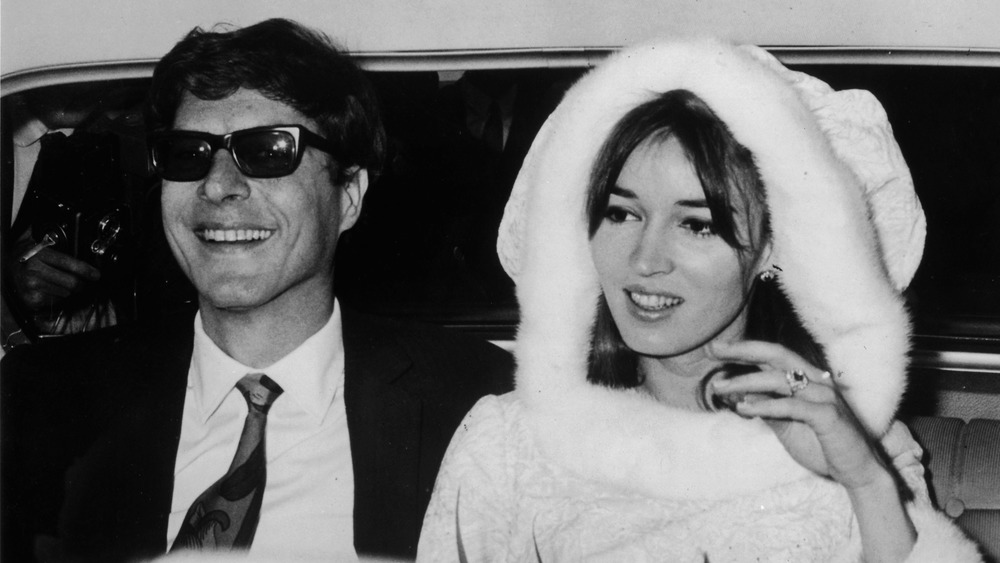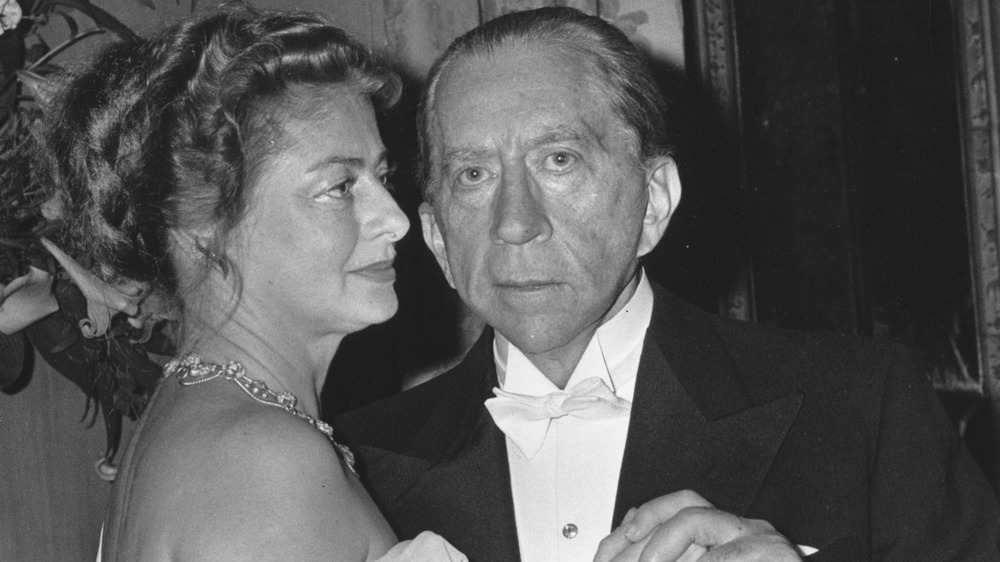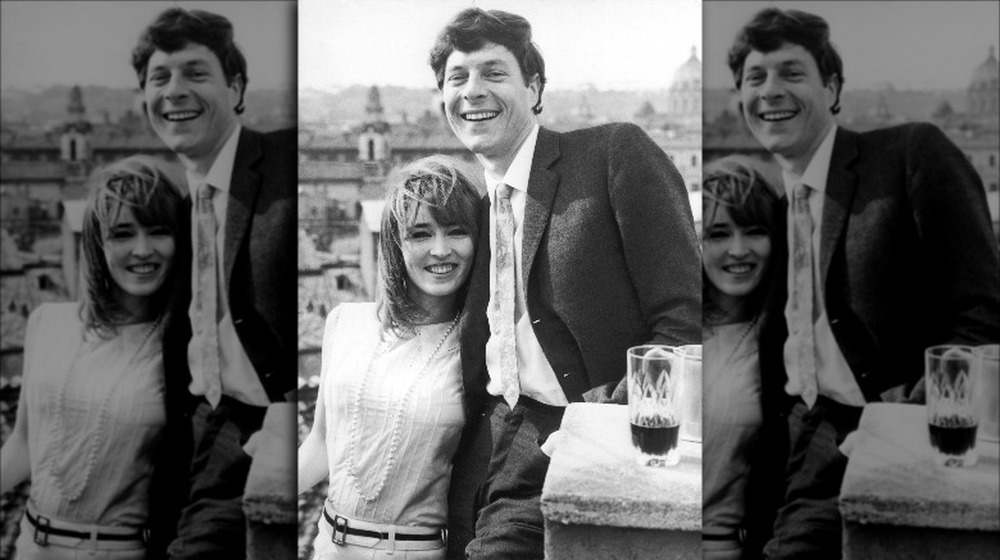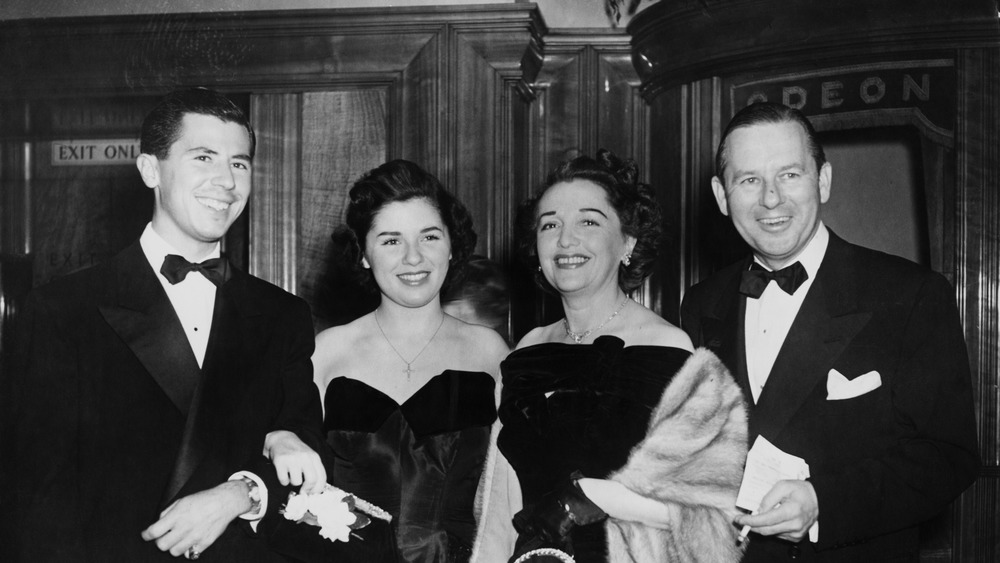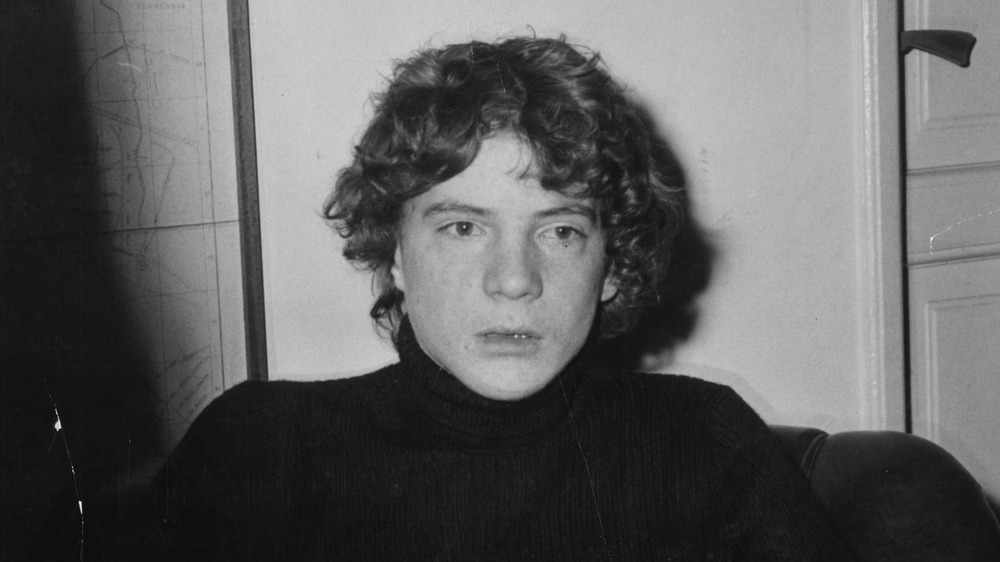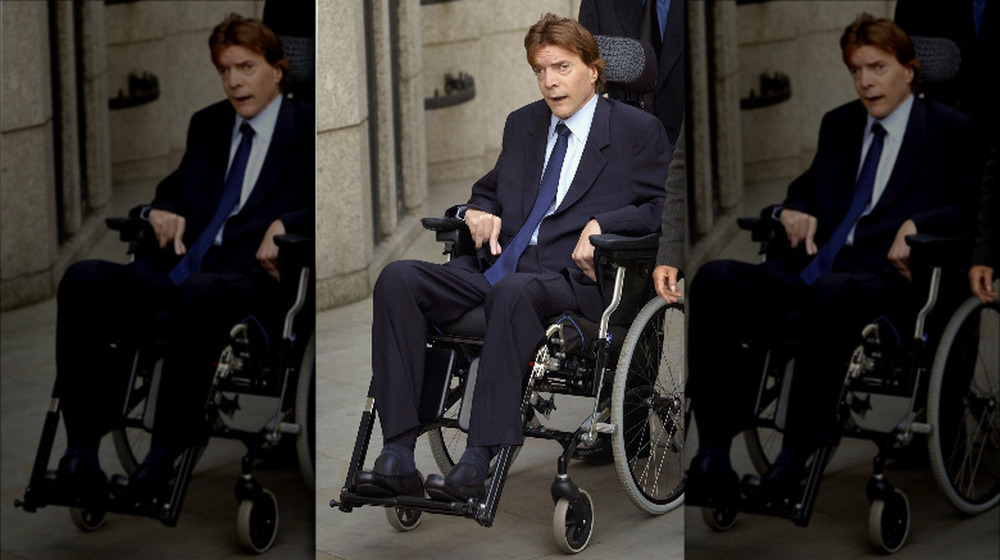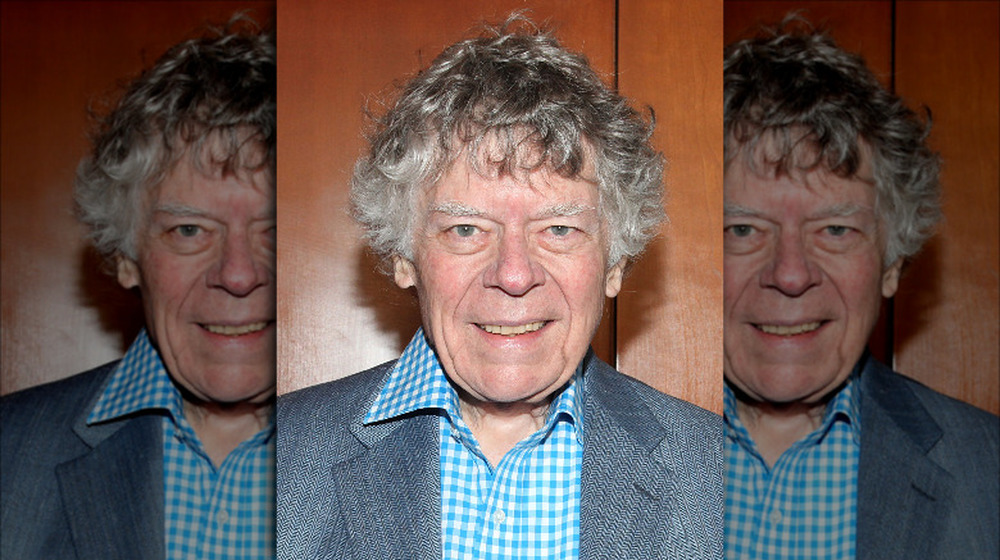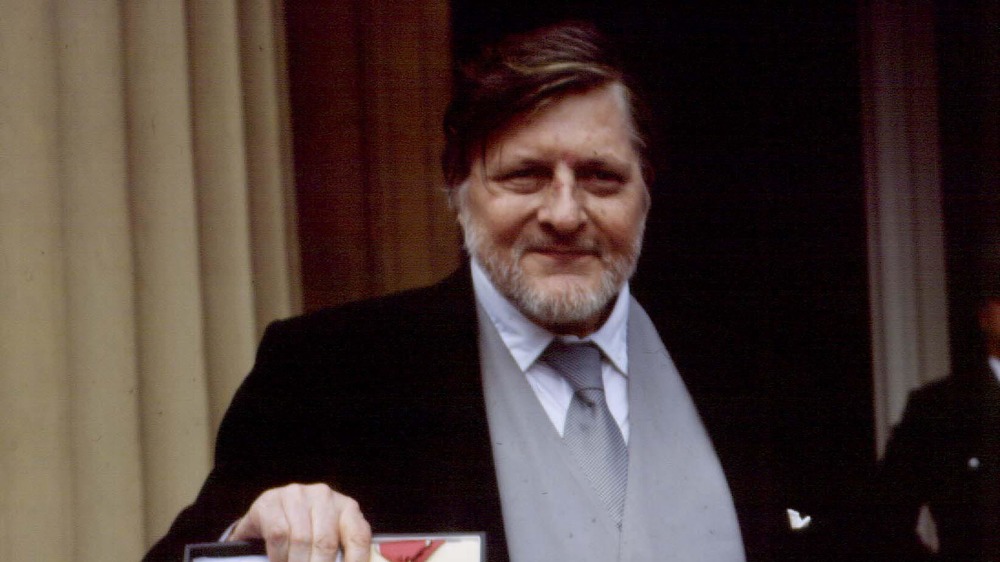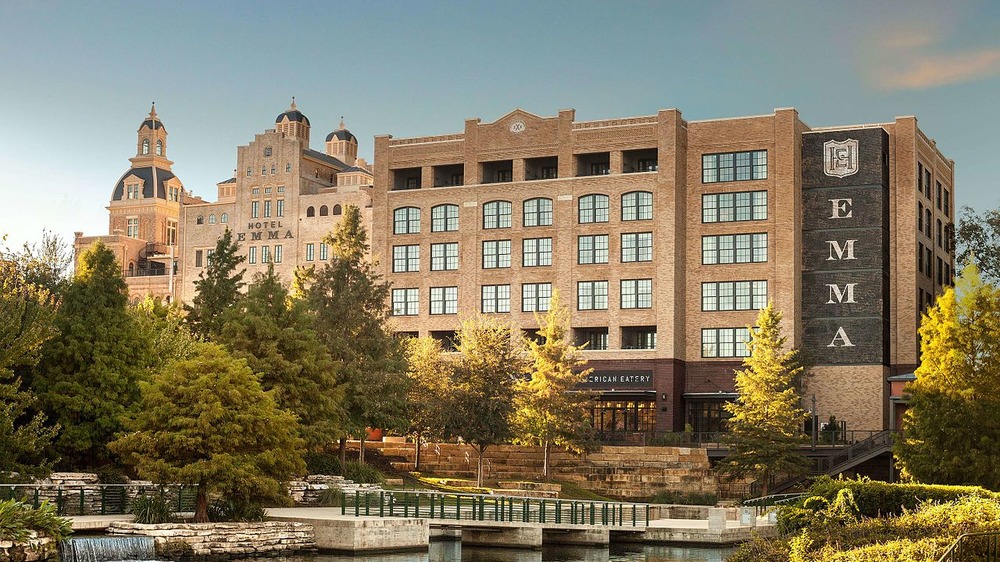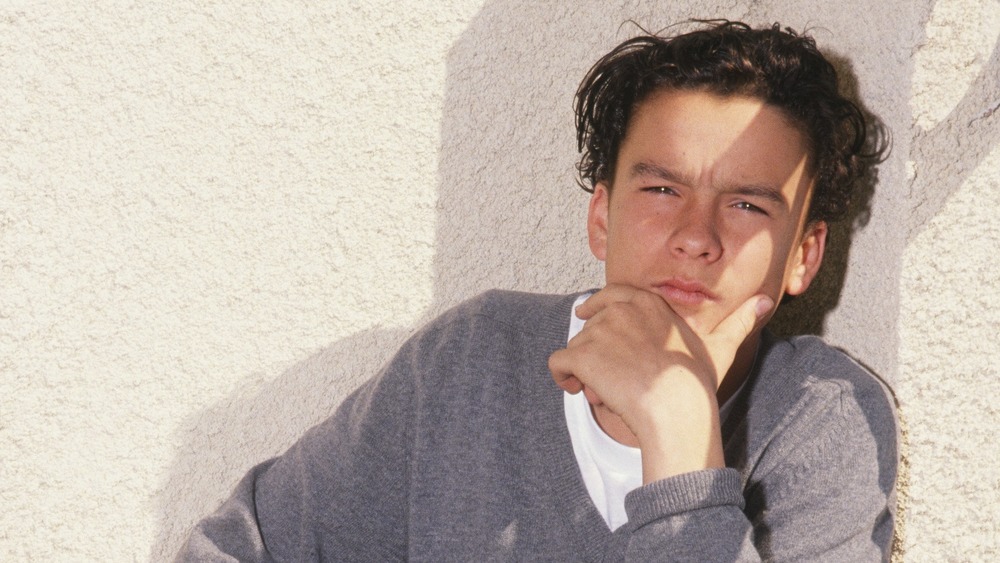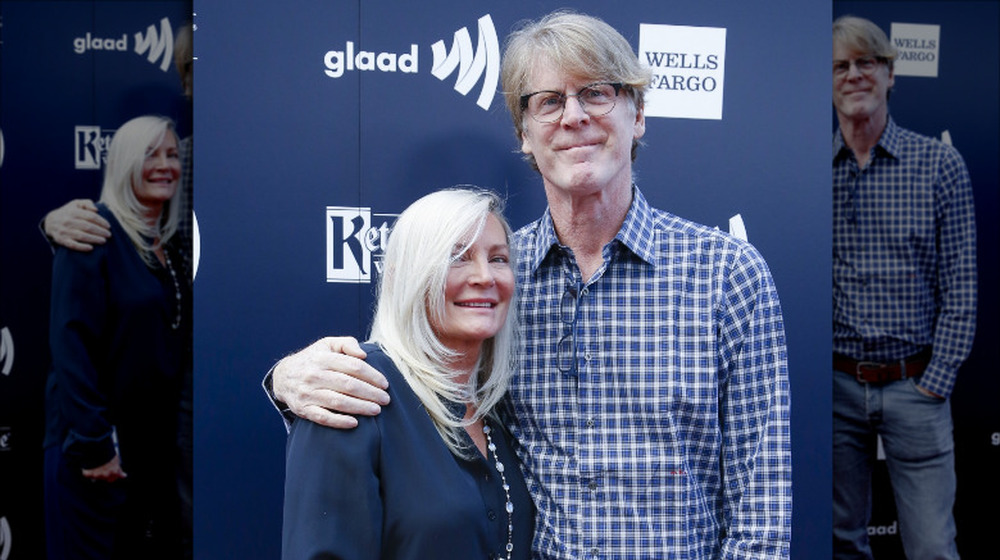The Tragic Real-Life Story Of The Getty Family
The phrase "money can't buy happiness" sounds wise, but it overlooks one important fact: Money can, in fact, buy the things that make us happy. Of course, too much of anything is bad for you, and that's really where the money bites you. When you can have anything you want at any time, it's easy to lose yourself.
Case in point: The Getty family. Once ranked as one of the wealthiest families in the world—and still worth billions—the descendants of Jean Paul Getty's oil empire have spent the last five decades experiencing the corrosive effects of money. While their name is still inextricably linked to the oil business and the chains of gas stations that once bore their name, the family sold its interests in the 1980s for an eye-popping amount of money and have nothing to do with the oil business.
Still, there's that eye-popping amount of money. The Getty family actually makes being incredibly rich sound like a really terrible way to live, which is quite an accomplishment. You might be searching the couch cushions for rent money, but at least you haven't experienced the sheer number of kidnappings, suicides, and other horrors inflicted on the Gettys.
Jean Paul Getty had five failed marriages
Jean Paul Getty was an American success story. Given $10,000 to invest by his father, Paul built up the largest private fortune in the world over the next few decades. Despite being a relatively late entrant into the oil industry during its boom years, Paul had a nose for the business and was wildly successful.
Paul was incredibly unsuccessful as a husband, however. As noted by Forbes, over the course of his 83 years on this Earth, Paul married—and divorced—five times, with the last divorce coming when he was 66-years-old. None of the marriages were happy, either. According to The New York Times, his last wife accused him of skimping on paying for the cancer treatments for his young son Timmy, and when Timmy succumbed to his brain tumor at the age of 6, Paul didn't bother to attend the funeral.
One reason for Paul's marital failures might have been his enormous sexual appetites. As reported by Vanity Fair, he kept multiple mistresses living with him in his mansion, took handfuls of vitamins and "sex drugs" to stay potent into his 80s, and often boasted of having sex with multiple women in one day. That sort of thing tends to put a damper on marital bliss no matter how rich you are.
The love of John Paul Getty, Jr.'s life overdosed
Jean Paul Getty's kids and grandkids were brought up in wealth, but it didn't do them any favors. His third son, Eugene, changed his name to John Paul Getty, Jr. when he was 16. According to Forbes, he was seen as the heir apparent to his father's business empire and was his father's favorite son.
Paul Jr. married his longtime girlfriend Gail Harris in 1956. The couple had four children and moved to Italy. Things seemed to be going great for Paul Jr., but as Refinery29 reports he fell in with a bohemian crowd. He began living a drug-fueled lifestyle, divorced Gail, and took up with model and actress Talitha Pol, marrying her in 1966. Paul Sr. disapproved of, well, everything his son had been up to and gave him an ultimatum: Sober up and leave Talitha, or he'd be fired from his executive position with Getty Oil. Paul Jr. resigned on the spot, comforted by the $100,000 a year he received from a trust (a little over $800,000 in today's money). The couple set up in Morocco, had a son they improbably named Tara Gabriel Galaxy Gramophone, and sank into deep heroin use.
Talitha left Paul Jr. in 1968, moving to London to sober up and raise Tara. Paul Jr. moved back to Rome, and in 1971 convinced Talitha to come back to him. They fell back into their drug habit, and she died of an overdose shortly afterwards.
Jean Paul Getty's oldest son committed suicide
Jean Paul Getty's oldest son, George Franklin Getty II, was named executive vice president and chief operating officer of the Getty Oil Company in 1967. This would normally be a sign of affection and trust from his father, but as Vanity Fair reports the opposite was true: Jean Paul Getty thought very little of his son's business skills, and frequently made decisions without consulting him. This made George little more than a figurehead. And he wasn't close to his father, either, famously calling him "Mr. Getty" and revealing he didn't see much of his dad after the age of 10—most of their contact was via letter.
All of this conspired to make George incredibly unhappy. Forbes notes George was actually a pretty successful businessman, holding director roles with both Bank of America and Douglas Aircraft. But his father's low opinion ruined his confidence, and by the early 1970s George began drinking heavily. He quickly moved on to pills and other drugs.
On June 6, 1973, George and his wife fought bitterly. George locked himself in his bedroom and began drinking and taking pills. There are reports he fired a shotgun into the air and threatened to kill everyone, and then he stabbed himself in the belly with a barbecue fork. Eventually he passed out and slipped into a coma. The family, worried about the scandal, delayed medical care by taking him to a distant private hospital, where he soon died.
If you or anyone you know is having suicidal thoughts, please call the National Suicide Prevention Lifeline at 1-800-273-TALK (8255).
John Paul Getty III was kidnapped and held for ransom
Perhaps the most famous tragedy to afflict the Getty family happened in 1973 when Jean Paul Getty's grandson, John Paul Getty III, was kidnapped while living in Italy. This famous event has been made into both a film (All the Money in the World with Christopher Plummer taking over the role of Jean Paul Getty from Kevin Spacey) and a television series, Trust.
Rolling Stone reports Paul III fell in with a drug-soaked bohemian crowd. He didn't have much access to money, but his name opened doors and kept the drugs and good times flowing. In July, his mother received a letter from him stating he'd been kidnapped, but she initially dismissed it, because Paul III had often speculated he might pry some money out of his grandfather by faking his own kidnapping.
When it became clear the grandson actually had been kidnapped by Italian gangsters, Jean Paul Getty famously refused to pay the $17 million they demanded as ransom. The crusty old billionaire said it was a practical matter: He had 14 grandchildren, and if he paid this ransom they would all be in danger of kidnapping. Even after the kidnappers cut off the kid's ear and sent it as proof of their intentions, the old man stood his ground, eventually negotiating the ransom down to $3 million—a million of which came as a loan to his son, which would have to be paid back.
John Paul Getty III spent most of his life paralyzed
Jean Paul Getty's grandson, John Paul III, survived his kidnapping in Italy in 1973, eventually ransomed by his immensely wealthy family after months and months of bickering and negotiation. But he didn't get away without scars both physical and mental. The kidnappers, frustrated when Jean Paul Getty refused to pay their ransom demands, eventually cut off Paul III's ear and mailed it to the family. And the young man never recovered from his ordeal.
As noted by Rolling Stone, initially he seemed to move on from the experience. He had surgery to reconstruct his ear, went back to school, got married and had a son (Balthazar, who became a successful actor). But all the while he sank further and further into a serious drug addiction, which led to an overdose and a massive stroke in 1981, when he was just 24-years-old.
Forbes reports that the stroke left Paul III paralyzed, unable to speak, and nearly blind. He lived another 30 years in a wheelchair, cared for by his mother. According to People, he refused to let his health stop him from living his life, and did everything he could to remain active, including having a special wheelchair designed that allowed him to go skiing.
The family fought bitterly over the money
Despite the corrosive effect the Getty fortune had on everyone, when Jean Paul Getty died in 1976 everyone saddled up for an epic war over the money.
Jean Paul Getty left the bulk of his fortune to the J. Paul Getty Museum in California, but that didn't leave his children penniless. As Forbes notes, the family's personal fortune stemmed from a trust that Paul's mother had set up in the 1930s—a trust that controlled about 40 percent of the Getty Oil business. The sole trustee was Paul's son Gordon, who took control of the business and sold it to Texaco in 1984 for more than $10 billion. Gordon then opened up the family trust and used it to pay off the taxes accrued on the Texaco deal, and then paid his brother and nieces $750 million each—leaving most of the rest of the family out. According to the Los Angeles Times, for example, his brother Jean was stuck with just $3,000 a year from the trust.
Lawsuits were fired off, but the rest of the family was hampered by the fact that the trust's terms had been set for decades, and yet no one had tried to change them. Jean argued his father had verbally committed to changing the terms of his will to make things more equitable but couldn't prove it—and so the suits failed to change the outcome.
Gordon Getty had a secret second family
Conspicuous consumption is one way to let the world know you're incredibly wealthy. That's why so many rich people have multiple cars, houses, and more clothes than they can possibly wear. When you're really rich you have at least two of everything—including families.
At least, that's what Gordon Getty seemed to think. As Forbes notes, Gordon was considered to be one of the least controversial of the Getty children. He was a successful businessman and had garnered a reputation for philanthropy, using his money for good. Then, as detailed by SFGATE, it was discovered in 1999 that Gordon Getty had fathered three daughters with a woman named Cynthia Beck. Cynthia and her daughters, Nicolette, Kendalle, and Alexandra, came to light when they sued to be considered part of the Getty estate. Gordon, to his credit, didn't try to deny it—he immediately acknowledged the 14-year relationship with Cynthia and his paternity of all three girls, and did not contest the legal move to change the girls' last name to Getty.
Remarkably, Getty and his wife, Ann, remained married even after the revelation Gordon had kept not just an affair but a whole second family from her. The New York Times reports Ann passed away in September 2020.
John Paul Getty, Jr. was in and out of hospitals
John Paul Getty, Jr. was regarded as the heir apparent of the Getty empire. After marrying his first wife, Gail, and having four children with her, he left her for model and actress Talitha Pol. Talitha and Paul Jr. lived a wild life in Italy, taking lots of drugs and throwing parties that attracted the rich and famous from all over the world.
Talitha left Paul Jr. shortly after their son was born in order to sober up and kick her heroin habit, but returned to him in 1971. She died of an overdose shortly afterward. A few years later, his son John Paul Getty III was kidnapped in Italy and suffered terribly when his grandfather refused to pay the ransom. Paul Jr., who had been cast out of the family business by that point, had to borrow part of the ransom from his own father. His son was never the same, and suffered a drug-related stroke in 1981.
As The Los Angeles Times reports, these tragedies left Paul Jr. depressed almost to the point of paralysis. Forbes reports that his years of drug addiction had severely impacted his health, leaving him with cirrhosis, circulatory problems, and trouble breathing. He checked himself into the London Clinic several times for these ailments and his depression. He found some peace later in life with his philanthropic work, giving away vast sums of his fortune for good causes, and died in 2003 at the age of 70.
John Paul Getty's grandson Andrew died young
The so-called "Getty Curse" extended beyond the first generation and continues to afflict the grandchildren of Jean Paul Getty. In 2015, his grandson Andrew was found dead in his home in Los Angeles at the age of 47—and the circumstances surrounding his demise were very mysterious.
For one, according to People, Andrew had apparently been feeling ill for months but hadn't done anything about it. He'd finally made an appointment with his doctor, but died before he could make it. He was found half-dressed, lying on the floor between his bathroom and the hallway. For another, he was found by an ex-girlfriend named Lanessa DeJonge. Andrew had filed a restraining order against Lanessa, however, and she wasn't supposed to be at his home. The Washington Post reports the police were called to Andrew's home 31 times because of the epic fights the two would get into.
As usual, the Getty Curse took the form of drug addiction. After years of struggling with substance abuse, Andrew had claimed to be clean and sober for years. But the coroner eventually ruled his death was the result of an intestinal hemorrhage stemming from a bleeding ulcer—and a tragic overdose of methamphetamine.
Grandson John Gilbert Getty died young
The Getty family continues to suffer tragedies in the 21st century. As The Independent reports, just a few weeks after his mother, Ann Getty, passed away of a heart attack, Jean Paul Getty's grandson and heir John Gilbert Getty was found dead in his hotel room in San Antonio. He was just 52-years-old. Gilbert was the next in line to inherit the family's fortune, still estimated to be in the $5 billion range.
Described as a "talented musician" by his family, Gilbert's body was found by hotel staff when he missed the checkout time. According to The Telegraph India, he had been staying in the luxury Hotel Emma for weeks, and was found in a common yoga pose known as the Lotus Pose, eyes and mouth open. He had last contacted his assistant the day before, and there was no sign of struggle or foul play in the room. Although the results of an autopsy haven't been released, the police stated there was no reason to suspect foul play—but there are rumors that Gilbert had a substance abuse issue, and that a drug dealer's contact information was found on his phone. Considering the family's long history of substance abuse problems, it's reasonable to think drugs had something to do with Gilbert's untimely death.
Balthazar Getty struggled
There was a time in the 1990s when Balthazar Getty, son of John Paul Getty III, seemed poised to be the next big thing in Hollywood. At the age of 15, he starred in the 1990 adaptation of Lord of the Flies and appeared in a string of big productions, including Young Guns II, Natural Born Killers, and Lost Highway.
But as People reports, Balthazar struggled a great deal in his youth. Everyone assumed he was incredibly rich—but his father had drifted away from the family in the wake of his 1973 kidnapping, when Balthazar's great-grandfather Jean Paul Getty initially refused to pay the demanded ransom. Balthazar's family didn't have much when he was growing up. Balthazar admits that he "overcompensated" by living a wild life. He would get into fights and act out in order to shed the undeserved "rich kid" image. He got married in 2000 and had four children—but then famously blew up his marriage when he had an affair with actress Sienna Miller. According to Marie Claire, Balthazar reconciled with his wife after the affair ended, and the two remain married to this day.
Like many of his relatives, Balthazar also struggled with drugs. He eventually dealt with his demons and reignited his acting career, working steadily on shows like Brothers and Sisters, Alias, and Twin Peaks.
The Gettys are portrayed as villains
It comes with the territory: When you're an incredibly rich family with a long history of scandal, drug abuse, and other bad behaviors, you're going to be a target. Although their notoriety had declined after the death of patriarch Jean Paul Getty in 1976 and the subsequent sale of Getty Oil to Texaco in the early 1980s, in the last few years interest in the Getty family has spiked. This is in part due to the Ridley Scott film All the Money in the World and the Danny Boyle mini-series Trust, both of which focused on the 1973 kidnapping of John Paul Getty III.
But as The New York Times reports, the new generation of Gettys think they're being treated unfairly. Instead of heartless, greedy rich people, Ariadne Getty and her children Nats and August insist they're progressive and philanthropic—and nothing at all like the wilder relatives. They point out that far from being stodgy, conservative, and money obsessed, both Nats and August are proudly gay, and support organizations like GLAAD.
In fact, far from a money-obsessed monster, their mother Ariadne works hard for good causes. She pledged $15 million dollars to the LGBQT rights organization in 2018. Ariadne also sits on the board of the Better World Fund, which endeavors to assist refugees and support gender equality around the world.
